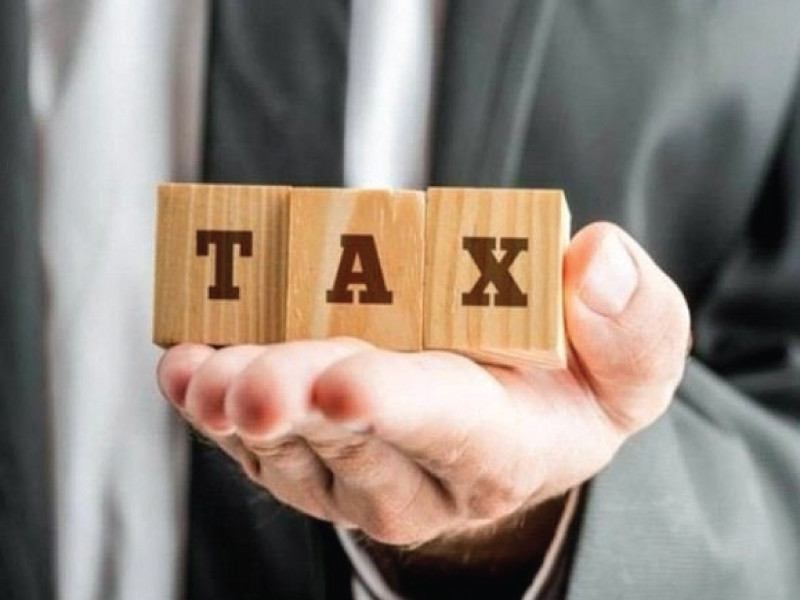
The Federal Board of Revenue (FBR) has intimated the government that tax shortfall may further widen to around Rs400 billion by the end of December as the authorities even struggle to capture real-time sales data of parliament's cafeteria across the road.
The FBR suggested to the finance minister that there was a need to review the heavy taxes on the real estate sector, which led to a slowdown in property sales. However, it did not suggest a reduction in the income tax of up to 39% on the salaried class, which is reeling from high taxes.
In a briefing to Finance Minister Muhammad Aurangzeb on Tuesday, the FBR's senior officials said that the tax shortfall may widen by Rs50-60 billion in December. The briefing came after the FBR missed its July-November target by Rs341 billion, despite imposing record taxes of over Rs1.5 trillion in the budget.
The finance minister was told that efforts would be made to meet the monthly tax target of Rs1.373 trillion but there were chances of a shortfall of Rs60 billion. The FBR officials recommended a review of high taxes on the real estate sector to improve the collection. However, any reduction may require the endorsement of the International Monetary Fund (IMF).
Prime Minister Shehbaz Sharif's government fell short of the five-month target despite hiring foreign-funded consultants, approving new cars and doling out cash among taxmen. The cabinet last week approved summaries for injecting more money into the FBR without discussing the matter in a meeting with full quorum.
Against the target of Rs4.64 trillion, the FBR collected Rs4.295 trillion in five months, achieving a growth of 23%. It needs a 40% growth to reach the annual goal of nearly Rs13 trillion.
The IMF will assess December's tax collection before deciding on bringing a new tax-loaded budget. The lender is of the view that the direct tax collection has remained on track, but there are serious issues in achieving the targets for three indirect taxes – sales tax, federal excise duty and customs duty.
The FBR had briefed the IMF that the revenue shortfall was due to a mismatch between the assumptions taken to set targets and the actual first-quarter results.
The FBR earlier projected that the tax shortfall would be in the range of Rs325-Rs350 billion for the first half of the current fiscal year, but the estimate proved wrong by the end of the fifth month.
PM Sharif said last week that trillions of rupees worth of taxes were being evaded in collusion with the taxmen, but he added that it would take time before the issues were resolved. However, it is not only the taxmen who are at fault; their efforts are also undermined by the government's own inaction. Parliament's cafeteria, being run by a private contractor, is not integrated with the FBR's computerised system. The cafeteria management receives bills in cash and does not generate Point of Sale (POS)-based receipts.
Sources said that the FBR gave multiple notices to the cafeteria for connecting to the POS system. Meanwhile, a delegation of traders, led by PML-N's former MNA from Faisalabad, met the finance minister and discussed the government's attempts to bring traders into the tax net.
The government boasts that its withholding tax collection from the traders under Section 236H has increased compared to the previous year. These traders are willing to pay a 2.5% tax, which they recover from consumers, but are not ready to enter the tax net.
The government has also introduced the Tajir Dost Scheme to fetch an additional Rs50 billion from the traders, but the collection in three months was hardly Rs1 million. The finance minister admitted on Monday that there would be "hiccups" in implementation of the $7 billion IMF loan programme.
Finance secretary, in a briefing to the National Assembly Standing Committee on Finance, confirmed that so far Pakistan had missed the IMF's conditions on tax collection, expenditure on healthcare and education, increasing the domestic debt maturity and the approval of agricultural income tax laws by provinces.
In a press release, the Ministry of Finance said on Tuesday "the IMF programme is proceeding smoothly, with no disruptions, as the government remains fully committed to meeting all the conditions and ensuring the successful completion of the 37-month programme in close coordination with the IMF staff".
The ministry reaffirmed that the finance minister had consistently emphasised the government's commitment to the macroeconomic reforms. In a recent briefing to the NA Standing Committee on Finance, the minister reiterated that adhering to the IMF programme was critical for achieving lasting macroeconomic stability.
Any speculation regarding "hiccups" in the programme's implementation is based on one's subjective interpretations and lacks credible evidence, said the ministry.
The government remains focused on maintaining economic stability and fulfilling all obligations under the IMF programme, aiming to lay the foundation for stronger, sustainable and inclusive growth, it said.









1733260913-0/image-(6)1733260913-0-270x192.webp)








COMMENTS
Comments are moderated and generally will be posted if they are on-topic and not abusive.
For more information, please see our Comments FAQ